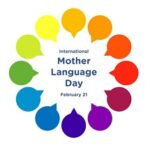International Mother Language Day – Student Essay
International Mother Language Day – Student Essay: International Mother Language Day is observed on February 21st every year to promote linguistic and cultural diversity and multilingualism around the world. The day was first announced by UNESCO [United Nations Educational, Scientific and Cultural Organization] in 1999 to recognize the importance of mother languages as a tool for preserving cultural heritage and promoting sustainable development.
International Mother Language Day is an annual observance that was first celebrated in 2000, following the proclamation by UNESCO in 1999. The day is now recognized and celebrated by people around the world, including governments, non-governmental organizations, and individuals.
The day also serves as a reminder of the tragic events that took place in Dhaka, Bangladesh, on February 21, 1952, when university students and activists were killed while demonstrating for the recognition of Bangla as an official language of Pakistan. This event is now recognized as Language Martyrs’ Day or Shaheed Day in Bangladesh.
The day aims to promote awareness of the importance of mother languages in preserving cultural heritage and promoting diversity. The use of mother languages is also recognized as a key factor in promoting sustainable development, as it enables individuals and communities to fully participate in social, economic, and political life.
The United Nations estimates that there are around 7,000 languages spoken in the world today, and that half of them are at risk of disappearing. Therefore, promoting the use and preservation of mother languages is crucial for maintaining cultural diversity and promoting social and economic development.
Each year, UNESCO selects a theme for International Mother Language Day, which is used to focus the celebrations and activities around the world.
 The theme of International Mother Language Day changes every year, but the overall aim is to promote linguistic and cultural diversity and encourage people to use and celebrate their mother language. Through this celebration, people are encouraged to learn about and respect the languages and cultures of others, and to recognize the importance of language in promoting peaceful coexistence and sustainable development.
The theme of International Mother Language Day changes every year, but the overall aim is to promote linguistic and cultural diversity and encourage people to use and celebrate their mother language. Through this celebration, people are encouraged to learn about and respect the languages and cultures of others, and to recognize the importance of language in promoting peaceful coexistence and sustainable development.
Some of the past themes have included “Towards Sustainable Futures through Multilingual Education,” “Inclusion in and through Education: Language Counts,” and “Quality Education, Language(s) of Instruction and Learning Outcomes.”
Many countries also have their own national or regional language days, which are often celebrated alongside International Mother Language Day. These events provide an opportunity for people to celebrate and promote the languages and cultures that are important to them, and to raise awareness about the value of linguistic diversity.
Student Essays
- Crypto Currency and Issues Related To It
- Life Lessons That Corona Virus Taught Us
- Role Student Keeping Area Clean
- International Women’s Day
- Environmental Pollution
- National Youth Day
- World Braille Day
- Earthquake



